Sept. 7, 2022
Thesaurus : Doctrine
► Référence complète : G. Lhuilier, "La proposition de directive européenne sur le devoir de vigilance des entreprises en matière de durabilité", RDAI/IBLJ, n°5, 2022, p. 423-452.
____
► Résumé de l'article :
________
July 6, 2022
Thesaurus : Doctrine
► Full Reference: A. Danis-Fatome, "The proposal for a European Directive on the duty of vigilance: brief views on civil liability", International Business Law Journal, 5, 2022, p. 489-497.
____
► Summary of the article (done by the Journal of Regulation & Compliance):
________
June 16, 2022
Thesaurus : Doctrine
► Référence complète : M. Pellissier & S. Cheikh, "Du nouveau domaine de la protection du lanceur d’alerte et de quelques difficultés d’articulation avec les dispositifs de droit du travail", in Fr. Drummond & J. Icard (dir.), Le nouveau cadre légal des lanceurs d’alerte, JCP E, n° 24, 16 juin 2022, étude 1214, pp. 22-28
____
► Résumé de l'article (fait par l'auteur) : "Les modifications apportées au domaine de la protection du lanceur d’alerte seront présentées en portant une attention particulière à l’articulation du dispositif de droit commun et des dispositifs d’alerte intéressant le droit du travail.".
____
🦉Cet article est accessible en texte intégral pour les personnes inscrites aux enseignements de la Professeure Marie-Anne Frison-Roche
_______
June 16, 2022
Thesaurus : Doctrine
► Référence complète : Fr. Drummond & J. Icard, "Le nouveau cadre légal des lanceurs d’alerte", JCP E, n° 24, 16 juin 2022, étude 1213, pp. 19-21
____
Cet article constitue l'avant-propos d'un dossier consacré à la transposition en droit français de la directive européenne 2019/1397 du 23 octobre 2019 sur la protection des personnes qui signalent des violations du droit de l’Union par la loi n° 2022-401 du 21 mars 2022 visant à améliorer la protection des lanceurs d’alerte.
📙Consulter une présentation des autres articles du dossier :
- 🕴️M. Pellissier & 🕴️S. Cheikh, 📝Du nouveau domaine de la protection du lanceur d’alerte et de quelques difficultés d’articulation avec les dispositifs de droit du travail
- 🕴️S. Riancho, 📝Les sanctions des atteintes au lanceur d’alerte
- 🕴️Th. Saupin, 📝L’articulation entre le dispositif commun et les dispositifs sectoriels, l’exemple du droit bancaire et financier
- 🕴️J.-B. Barbièri, 📝Lanceur d’alerte et droit des sociétés
____
► Résumé de l'article :
____
🦉Cet article est accessible en texte intégral pour les personnes inscrites aux enseignements de la Professeure Marie-Anne Frison-Roche
________
June 16, 2022
Thesaurus : Doctrine
► Référence complète : J.-B. Barbièri, "Lanceur d’alerte et droit des sociétés", in Fr. Drummond & J. Icard (dir.), Le nouveau cadre légal des lanceurs d’alerte, JCP E, n° 24, 16 juin 2022, étude 1217, pp. 40-44
____
► Résumé de l'article (fait par l'auteur) : "Cette étude revient sur trois séries de questions soulevées par le nouveau statut du lanceur d’alerte issu de la loi du 21 mars dernier, à savoir les acteurs sociétaires bénéficiaires du statut de lanceur d’alerte et l’articulation du régime posé par la nouvelle loi avec des règles sociétaires et des dispositifs d’alerte existants.".
____
🦉Cet article est accessible en texte intégral pour les personnes inscrites aux enseignements de la Professeure Marie-Anne Frison-Roche
_______
June 16, 2022
Thesaurus : Doctrine
► Référence complète : A. Danis-Fatôme, "La responsabilité civile dans la proposition de directive européenne sur le devoir de vigilance", D. 2022, p. 1107-1116.
____
► Résumé de l'article (fait par l'auteur) : La proposition de directive européenne sur le devoir de vigilance en matière de durabilité du 23 février 2022 est source d'espoir pour tous ceux qui souhaitent orienter les pratiques des entreprises dont les activités comportent des risques d'atteintes aux droits humains et à l'environnement. En renvoyant au mécanisme de la responsabilité civile, ce texte montre quelles ressources contient cette source d'obligations. La conception qu'en retient le texte européen présente l'intérêt de donner toute sa place à la fonction préventive de la responsabilité civile. La proposition de directive est cependant critiquable à plus d'un égard ce qui mène à plaider pour que plusieurs modifications lui soient apportées.
________
June 7, 2022
Thesaurus : Doctrine
► Référence complète : F. Barrière, "Vers davantage d'alertes professionnelles : un nouveau paradigme à anticiper pour les entreprises", Revue des sociétés, 2022, p. 327-334.
____
► Résumé de l'article (fait par l'auteur) : "La protection des lanceurs d'alerte a récemment été renforcée - par deux lois qui entreront en vigueur le 1er septembre 2022 -, à l'occasion de la transposition de la directive (UE) n° 2019/1937 du Parlement européen et du Conseil du 23 octobre 2019 sur la protection des personnes qui signalent des violations du droit de l'Union, signe qu'un tel lanceur d'alerte est de nature à participer à la défense de l'intérêt général, voire d'être un participant clé de la démocratie contemporaine au niveau de chacun des États de l'Union européenne. Le droit français, tel qu'issu de la loi dite « Sapin 2 », semble l'avoir au demeurant en partie inspiré ; il est néanmoins modifié sur plusieurs aspects. La définition du statut d'alerte est élargie, les canaux de signalement ne sont plus hiérarchisés, les facilitateurs des opérations de signalement seront considérés, la liste de représailles prohibées est étendue, les mesures de protection au bénéfice du lanceur d'alerte sont renforcées, avec également un possible recours au Défenseur des droits ou encore une aide financière en cas de procédure « baillon » destinée à dissuader un lanceur d'alerte. Modifications de la définition du lanceur d'alerte, des procédures de signalement et des mesures de protection sont donc au coeur de la nouvelle législation. À côté des incitations, parfois obligations, des entreprises à s'auto-dénoncer auprès de certaines autorités (notamment étrangères mais également auprès du procureur en cas de suspicion de corruption internationale), existe maintenant une probabilité plus forte qu'une irrégularité au sein d'une entreprise fasse l'objet d'une alerte, du fait de ce cadre législatif renforcé. Signe d'un changement de paradigme, les entreprises auront à anticiper et gérer le risque d'alerte, d'autant plus que dorénavant une protection légale est accordée au lanceur d'alerte de faits illicites recueillis dans le cadre professionnel, sans qu'il n'ait à respecter un ordre de priorité interne dans le signalement effectué."
____
🦉Cet article est accessible en texte intégral pour les personnes inscrites aux enseignements de la Professeure Marie-Anne Frison-Roche
________
Nov. 25, 2020
Thesaurus : 06.1. Textes de l'Union Européenne
Full reference: Directive (EU) 2020/1828 of the European Parliament and of the Council of 25 November 2020 on representative actions for the protection of the collective interests of consumers and repealing Directive 2009/22/EC
May 28, 2020
Publications
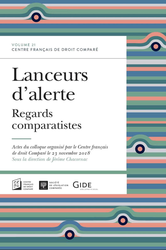
Full reference: Frison-Roche, M.-A., L'impossible unicité juridique de la catégorie des "lanceurs d'alertes" ("The impossible legal unicity of the category of "whistleblowers""), in Chacornac, J. (dir.), Lanceurs d'alertes, regards comparatistes, ("Whistleblowers, comparative perspectives"), Publications of the Centre français de droit comparé ("French Comparative Law Center"), May 2020, Volume 21, p.13-31.
Read the article (in French).
Read the general presentation of the collective book in which this article is published
Read the bilingual working paper which had served of basis for this article.
Read the presentation of the conference "Les lanceurs d'alertes: glose" (Whistleblowers: glose") and especially the slides elabored for the colloquium organized by the Centre français de droit comparé ("French Comparative Law Center") on 23th of November 2018 under the direction of Jérôme Chacornac
____
Introduction of the article
"Whistleblowers". This is a new expression. Which is a great success. Barely heard once, we hear it everywhere ...
A topic not of course or knowledge test, but rather a topic of daily conversation. Because it is spoken to us every day, in more or less gracious terms. For example President Donald Trump on October 1, 2019 declared to the press "want to question" the whistleblower who would have illegally denounced him and would not, according to him, have the right to conceal his identity, proof in this according to him of the lying character of his assertions against him, while his lawyer indicates on October 6, 2019 that he is not speaking on behalf of a single whistleblower thus taken to task but of a plurality of people who gave information against the President of the United States. Even the most imaginative screenwriters would not have written such brutal and rapid twists and turns. Spectators, we are waiting for the next episode, secretly hoping for the escalation.
And precisely if we go to the cinema, it is still a whistleblower whose dedication and success, we are told about, even the drama, for the benefit of global society, and in particular democracy, since the secrets are fought for the benefit of the truth. The Secret Man designates Mark Felt as the first whistleblower. Returning to what we often present as being a more "serious" media!footnote-1391, we listen to France-Culture and here is another story told by a historian who worked as an archivist on events that political power would have liked to keep hidden by possibly destroying their traces but which its trade led to preserve: here it is expressly presented to the studious listeners like a "whistleblower" .... While the same radio tries to find the one who could well be, as in a kind of contest the "first whistleblower"!footnote-1727? .... This rewriting of History can be defended because ultimately what did other Voltaire do for Calas, or Zola for Dreyfus?
It is also a subject of legislative discussion since in the United States the Dodd-Frank law of 2010 inserted in the law of 1934 which established the Securities & Exchanges Commission a complete device of remuneration and remuneration of the whistleblowers, whereas after having developed flexible but guiding lines in this regard in 2012!footnote-1698, the European Commission published on November 20, 2018 the text of what will become a Directive intended to give a unified European status to the character, in the system gradually developed to protect the one who was presented in 2018 as that "cannot be punished for having done what is right".
In Europe, the Directive first approved by a Resolution of the European Parliament on April 16, 2019 on the protection of persons denouncing breaches of Union Law and then adopted on October 7, 2019 (Directive of the European Parliament and of the Council of European Union on the Protection of Persons who Report Violations of European Union Law, different title, it should be noted, will have to be transposed into the laws of the Member States within the next two years. , since only "violations of Union Law" are targeted, but the character of the "whistleblower" is more generally targeted: he is "whole"!footnote-1699.
In short, the whistleblower is a star!footnote-1390. A sort of historical figure, covered in blows and glory, going from Voltaire to Snowden, both of whom find themselves embodied on the screens!footnote-1681 ....,
Consecrated by law, which associates with it a legal regime of protection to such an extent that, like a Nessus tunic, it is this legal regime which will define the character and not the reverse. When we read the law of December 9, 2016 relating to transparency in the fight against corruption and the modernization of economic life, known as "Sapin 2", we notice that the Legislator makes much of this character, since 'he dedicates its chapter II to him!footnote-1682: "From the protection of whistleblowers", and that it is by his very protection that he formally opens the door of Right to him.
But why a plural? Admittedly when we read the recitals of the Community Directive of October 7, 2019 on the protection of whistleblowers!footnote-1702, it is only a list of all the subjects on which it is a good idea to protect them, which therefore prompts us to see in this plural only the index of this non-exhaustive list of subjects which it is good to tell us, a sign of the lack of definition of who should alert us. Reading the French law known as "Sapin 2" makes it less severe but more perplexing. Indeed, this plurality referred to by the title of the chapter devoted to "whistleblowers", there is no longer any question in the rest of the law, in the very definition which follows, article 6 which opens this chapter devoted to "whistleblowers" offering the reader immediately a singular since it begins as follows: "A!footnote-1684 whistleblower is a person ...". No mention of diversity. The art of legislative writing would however have required that the qualifying article not only be singular but that it should not yet be undefined. Stendhal if he had still deigned to have the law for bedside book would have wanted to find at the beginning of chapter a sentence like: "The!footnote-1683 whistleblower is a person ...".
Thus seem to contradict themselves within the law "Sapin 2 the very title which presents the character, in that it uses a defined plural (the) while the defining article which presents it is in the undefined singular (one). ...
Here is a first reason not to advance any more but in a very careful way, in this "step by step" that constitutes a reading word for word: a gloss. This consists of taking the expression itself literally. The second reason for this technical choice is that the gloss is well suited to the introduction of a collective work, thus allowing more targeted developments to take place in other contributions, on the techniques, the difficulties and the limits of this protection, or on its history, or the reasons for the arrival in French law of these whistleblowers and the way they develop, or not, elsewhere.
I am therefore going to content myself with taking this already legal expression to the letter: The (I) whistle (III). blowers (II).

Updated: Oct. 8, 2019 (Initial publication: Nov. 22, 2018)
Publications
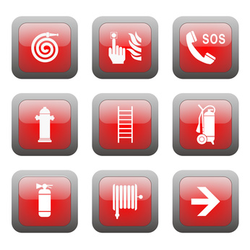
This working paper served as a basis for a conference done in French for the Centre de droit comparé (Center for Comparative Law) in Paris on 23 November 2018.
Updated, it has served as a basis for an article published in French in a book of the Société de Législation comparé (Society of Comparative Legislation).
________
"The whistleblowers". This is a new expression. Which wins a full success. Barely heard once, we hear it everywhere ...
A theme not only of academic teaching, but rather a topic of daily conversation. Because it is every day that we speak about it, in terms more or less graceful. For example President Donald Trump on October 1, 2019 told the press he "wants to interrogate" the whistleblower who would have unlawfully denounced him and would not have, according to him, the right to conceal his own identity, evidence in this according Donald Trump of the false character of his assertions against him, while his lawyer indicates on October 6, 2019 that he does not speak on behalf of a single whistleblower thus taken apart but of a plurality people who gave information against the President of the United States. Even the most imaginative scriptwriters would not have written twists as abruptly or so fast. Spectators, we wait for the next episode, secretly hoping for climbs and slashs.
Precisely if we go to the cinema, it is still a whistleblower whose dedication and success, or even drama, we are told, for the benefit of the global society, and especially of Democracy, since the secrets are fought for the benefit of the truth. Thus, the movie The Secret Man designates Mark Felt as the first whistleblower. Returning to what is often presented as a more "serious" media, for example in France the radio "France Culture" we can learn the story of a historian who worked as an archivist on events that the political power would have wanted to keep hidden by possibly destroying their traces but that his profession led to preserve
It is also a topic of legislative debate since in the United States the Dodd-Frank Act of 2010 inserted in the 1934 law that established the Securities & Exchanges Commission (SEC) a complete system for retribution and remuneration of whistleblowers, while after elaborating guidelines about about in 2012
In Europe, the Directive first approved by a Resolution of the European Parliament on 16 April 2019 on protection of persons reporting breaches of Union law and then adopted on 7 October 2019 (Directive 2019/78 (EU) of the European Parliament European Union and the Council of the European Union on the Protection of Persons Reporting Breaches of Union law, will have to be transposed in the next two years to the legal systems of the Member States. is not general, since only "violations of European Union Law" are targeted but the character of the "whistleblower" is more generally referred to: it is "whole"
In short, the whistleblower is a star
Recognized by national legislations, which associate to him a legal regime of protection to such a point that, like a tunic of Nessus, it is this legal regime which will define his character and not the opposite. When we read the French law of December 9, 2016 relative à la transparence à la lutte contre la corruption et à la modernisation de la vie économique (on transparency in the fight against corruption and the modernization of economic life), usually known as "Sapin 2 Act", we note that the lawmaker makes much of this character, because he devotes to him the chapter II: "De la protection des
But why a plural? Certainly when we read the recitals of the European Directive of 7 October 2019 on the protection of whistleblowers
Thus seem to contradict in this law "Sapin 2" itself the very title which presents the character, in that it uses a definite plural ("the whistleblowers") while the article of definition which presents the topic does it by using the singular indefinite : "a whistleblower....".
This is a first reason to move forward only in a very cautious way, in this "step by step" that constitutes a word-by-word reading: a gloss. This method consists in taking literally the expression itself. The second reason for this technical choice is that the gloss is well suited to an introduction of a collective work, allowing more specific developments to take place in other contributions, for example on the techniques, the difficulties and the limits of this protection, or the history of it, or the reasons for the arrival in French law of these American or Brithish whistleblowers and the way they develop, or not, in other legal systems or other countries.
I will therefore content myself with taking again literally this already legal expression: The (I) launchers (II) of alert (III).
See below developments.
On the more general fact that cinema is undoubtedly the medium which most seriously restores the state of the Law, c. Frison-Roche, M.-A., Au coeur du Droit, du cinéma et de la famille : la vie, 2016.
L'histoire du premier lanceur d'alerte, France Culture, septembre 2019.
European Commission, Guidelines on Whistleblowing, 6 of December 2012, SEC(2012) 679 final, updated on 23 of April 2018.
However, precisely the so common use of plurality ("whistleblowers") raises doubts about the uniqueness of the character. On this question, see. all the first part of the developments of this study, which leads to the conclusion rather than beyond the multitude of particular cases, there are rather two kinds of whistleblowers. V. infra I.
The director of the film La fille de Brest says that she considers the whistleblower at the origin of the case of the Pick as a "movie character".
Thus, the adventures of Snowden were brought to the screen by Oliver Stone in 2016, Snowden. On the question of knowing whether this film "faithfully reproduces" or not the case, Schetizer, P., Le film Snowden est-il à la hauteur de la réalité?, 2017. This article is favorable to the whistleblower, and to the film which tells us with emotion his case, in particular because (sic), it is easier than to read the Washington Post.
Underlined by us.
Underlined by us.
About this directive, v. the developments infra
Underlined by us.
Sept. 14, 2016
Thesaurus : Soft Law
May 3, 2016
Thesaurus

Référence complète : Lasserre Capdeville, J., Quel avenir pour les banques universelles en droit français ?, Petites Affiches, 3 mai 2016.
Les étudiants de Sciences po peuvent lire l'article via le drive dans le dossier "MAFR - Régulation"
L'auteur rappelle que la banque universelle est celle qui pratique à la fois les activités proprement bancaires et les activités financières. La catégorie n'existe pas dans le Code monétaire et financier mais rien n'empêche cette création, l'établissement obtenant d'une part l'obtention d'un agrément pour entrer dans le monopole des prestations de services bancaires et d'autres part d'un agrément pour offrir des prestations de services d'investissement.
June 25, 2015
Conferences
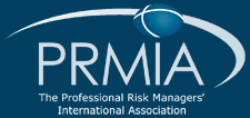
Aller sur le site de PRMIA.
Lire le programme du colloque.
Lire les slides, support de la conférence.
L'Europe a reçu le choc de la crise financière d'une façon différente de la façon dont les États-Unis l'ont reçu : les institutions européennes ont entièrement construit une Europe nouvelle : l'Europe Bancaire. De la même façon qu'en 1945 les chefs de guerre avait dit "plus encore la guerre entre nous", en 2009 les responsables européens ont affirmé "plus jamais de défauts bancaires qui compromettent la paix sociale de nos Nations". À partir de cette volonté purement politique, ce qu'il est convenu d'appeler les trois piliers de l'Union bancaire forment un "bloc", même si les dispositifs techniques se déploient successivement et parallèlement. En effet, la "résolution" est un anglicisme qui désigne une prévention de cessation des paiements lorsqu'elle met en risque un établissement financier, perspective qui risque de déclencher l'obligation pour un État de jouer son rôle de garanti en dernier ressort, recourant à la collectivité du groupe social national.
Ainsi, lorsque l'on regarde les textes organisant le mécanisme de résolution bancaire, on est admiratif devant leur précision et la sûreté du mécanisme. Ce "deuxième pilier" a vocation à bien fonctionner.
Mais il faut garder à l'esprit deux éléments, dont on peut douter parfois que ceux qui ont conçu la mécanique les aient eu toujours en tête.
En premier lieu, il s'agit d'un élément d'un puzzle qui est l'Europe, une Europe qui bouge et se reconstruit dans une cascade de crises dans lesquelles les banques et les États sont imbriqués d'une façon inextricable. Or, le droit de la résolution bancaire semble lisser cela. De la même façon, le droit calme et posé de la résolution bancaire semble ne pas faire place à un personnage qui est et sera pourtant déterminant : le juge. Il serait pourtant judicieux d'y penser toujours, même si l'on est astucieux de n'en parler jamais.
Oct. 22, 2014
Thesaurus : 06.1. Textes de l'Union Européenne
► Référence complète: Directive 2014/95/EU of the European Parliament and of the Council, of 22 October 2014, amending Directive 2013/34/EU as regards disclosure of non-financial and diversity information by certain large undertakings and groups (called "NFRD" (Non Financial Reporting Directive)).
____
________
July 27, 2014
Blog
phone usage in relation to the planes both air traffic control and telecommunications regulation: it is a case of interregulation .
French telecoms regulator, the ARCEP , consequently authorizes companies to operate the phones. But it reflects the need for security, limiting available bandwidth those that are not used by pilots.
Case technically successful interregulation , and it is likely that the re air regulator will therefore abandon its ban.
July 2, 2014
Thesaurus : Doctrine
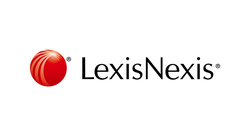
Référence complète : Petit, B., "Reporting" RSE : un nouveau coup d'épée dans l'eau..., in Revue Environnement et développement durable, Lexis-Nexis, juillet 2014, pp.1-16.
L'annonce d'une prochaine directive européenne instaurant un dispositif-cadre de "reporting" d'informations extra-financières paraît, à première vue, être une bonne nouvelle pour ceux qui défendent le concept de responsabilité sociétale des entreprises. L'espoir naît de voir évoluer le dispositif français, objectivement affecté de plusieurs malfaçons tenant notamment au périmètre trop restreint de l'obligation, à la piètre qualité des indicateurs à renseigner et à l'absence de toute sanction juridique directe en cas de manquement. Pourtant, à lire la proposition directive, l'espoir cède rapidement le pas à la déception, tant le texte européen manque d'ambition et de volonté de promouvoir sérieusement l’éthique d'entreprise. tout laisse à penser qu'une fois encore, les pouvoirs publics ont manqué une belle occasion de conférer, en droit, un peu de substance à ce concept pourtant déterminant pour l'avenir de la planète et le progrès social.
Les étudiants de Sciences-Po peuvent consulter l'article via le Drive, dossier "MAFR- Regulation & Compliance"

June 2, 2014
Publications
 The expression "regulated company" may appear as an oxymoron : the State regulates areas (markets, networks, etc.) because of their structural failures, but the State doesn't enter a company that develops its activities autonomously.
The expression "regulated company" may appear as an oxymoron : the State regulates areas (markets, networks, etc.) because of their structural failures, but the State doesn't enter a company that develops its activities autonomously.But on reflection, it is sometimes necessary to "regulate a company" and this necessity is increasingly imposed. This is imperative if a company absorbs the entire area, because it is a monopoly or because it wants to become the heart of a crucial area, such as Google which has the project to become the future global brain. In a more general way, it is a necessity to locate businesses which are "crucial", banks are only one example, and organize, beyond supervision, providing direct regulation of such firms.
This regulatory power on critical firms must take the form of attendance of public power and policy within the company itself, so that the state interfere in decisions which social group suffers the consequences.
The control can go beyond this "public presence" to take the form of "public authority", the state ruling as operator. Under such conditions of "cruciality", the neutralization of "public enterprise" by the competition law must cease, the public company must be better recognized as a regulatory instrument in distance with the simple game of competition.

Dec. 5, 2013
Publications
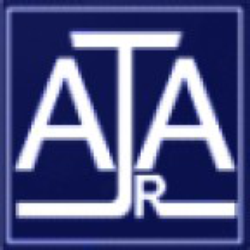
Ce working paper a été établi pour la participation à un colloque qui s'est déroulé à Paris le 5 décembre 2013 sur le thème "Le Conseil constitutionnel et l'assurance"
____
L’Europe financière a été construite en réaction à la crise et l’Europe de la régulation de l’assurance a été conçue comme un pilier de celle-ci. C’est pourquoi l’esprit et la forme de cette régulation est la protection de la place européenne financière qui est en construction, ainsi que la protection du consommateur de produits financiers. L’Autorité qu’est EIOPA, en collaboration avec l’ESMA et l’EBA, protège la place et le consommateur, tandis que les normes Solvency II peinent à se détacher de ce prisme financier pour reconnaître la spécificité de l’assurance, dans le fait que la société d’assurance n’est pas qu’une "non-banque" et que ses actifs sont spécifiques et qu’EIOPA met en place des normes intrusives dans la gouvernance des sociétés. Face à cela, on pourrait concevoir d’une façon raisonnable un passage de ces normes au "tamis constitutionnel" français, voire concevoir d’une façon plus audacieuse un contrôle constitutionnel des pouvoirs que l’EIOPA tient du Règlement communautaire du 24 novembre 2010.
Updated: July 31, 2013 (Initial publication: Oct. 4, 2011)
Teachings : Les Grandes Questions du Droit, semestre d'automne 2011

Sept. 11, 1999
Publications
Référence complète : FRISON-ROCHE, Marie-Anne, Transcription en droit français de la directive européenne sur l’électricité, in La libéralisation du secteur électrique, numéro spécial du Bulletin d’information des cadres, Institut de Management EDF-GDF, 1999, n°39, pp. 65-71.
May 13, 1997
Publications
Référence complète : FRISON-ROCHE, Marie-Anne, La directive relative au marché intérieur de l’électricité, en elle-même, in La déréglementation de l’électricité : quels enjeux pour l’Europe ? , Économie et sociétés, PUG, 1997, p.137 s.
Jan. 11, 1995
Publications
Référence complète : FRISON-ROCHE, Marie-Anne, Tous les courriers mènent à Rome, in Le service postal, Réalités Industrielles, Annales des Mines, janvier 1995, p.102 s.